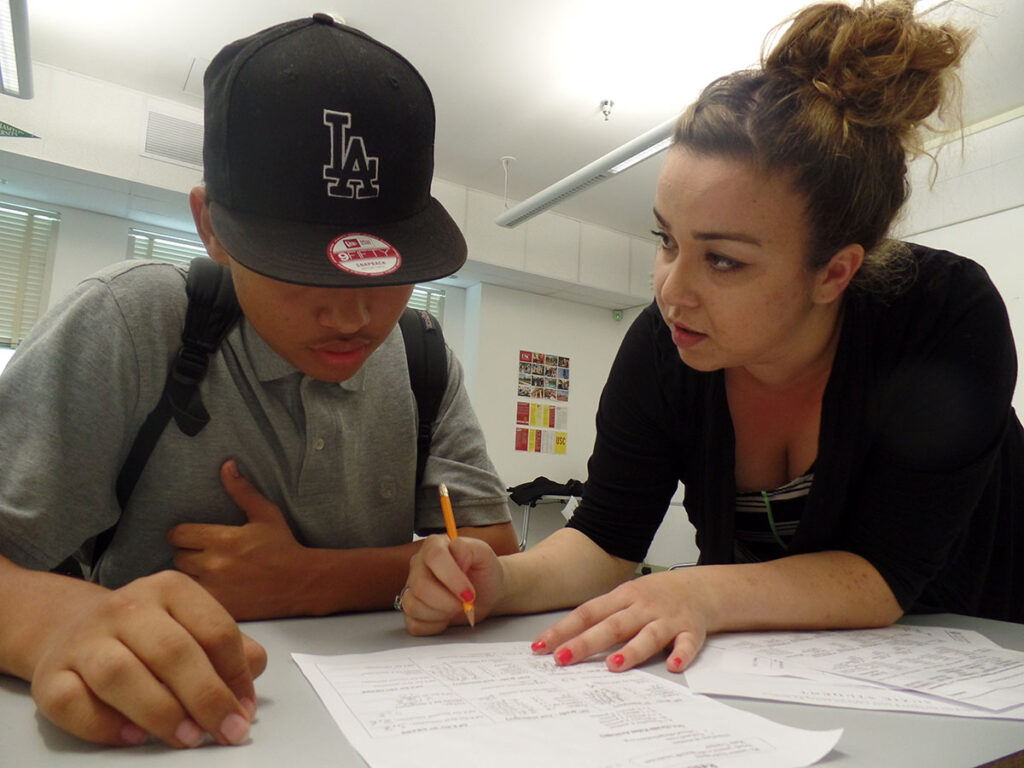
Credit: iStock_Ryan Balderas
The California Commission on Teacher Credentialing is considering whether the state should continue to use educator assessments customized for the state, adopt assessments given in other states, use a combination of both, or do something else.
A $25.6 million Pearson contract, which expires on Oct. 31, 2025, currently provides testing for the California Basic Education Skills Test, the California Subject Examinations for Teachers, the Reading Instruction Competency Assessment and the California Preliminary Administrative Credential Examination.
On Friday, commissioners directed staff to begin research on how best to improve teacher assessments in the state and to report back at a future meeting.
Commissioner Ira Litt called the assessment system “imperfect and overly burdensome.”
“We have a real opportunity to sort of influence and shape the ways we speak to the educator workforce and the kinds of ways that we bring folks into the profession,” he said. “I really don’t want us to miss that opportunity.”
California has been moving away from standardized testing for teacher candidates for several years. In July 2021, legislation gave teacher candidates the option to take approved coursework instead of the California Basic Education Skills Test, or CBEST, or the California Subject Examinations for Teachers, or CSET.
The state will retire the Reading Instruction Competence Assessment in June 2025 and will replace it with a Literacy Performance Assessment that allows teachers to demonstrate their competence by submitting evidence of their instructional practice through video clips and written reflections on their practice.
Despite the added options that teacher candidates have to prove their ability to teach, commission data shows that most are still choosing to prove competency by taking a test. Staff at the commission expect the number of people taking exams to decrease as more candidates learn about the other options available.
Nearly half of California’s potential teachers have struggled to pass the standardized tests required to earn a credential, according to data from the California Commission on Teacher Credentialing.
The CBEST tests reading, math and writing skills and is usually taken before a student is accepted into a teacher preparation program. The CSET tests a teacher candidate’s proficiency in the subject they will teach. The RICA must be passed before a teacher can earn a credential to teach elementary school or special education.
The CBEST is a barrier for educators of color, said John Affeldt, managing attorney at Public Advocates told EdSource after the meeting. He said the best outcome would be for legislators to eliminate the test.
Both tests are required by law and would take legislation to eliminate them.
“We’re urging the commission and the state to drop the test, much like what the state did with the California High School Exit Exam a few years ago,” he said.
At Friday’s CTC meeting, Commissioner Christopher Davis, a middle school language arts teacher, agreed. Standardized testing causes “disproportionate harm” to people of color, he said.
“We continue to struggle with the reality that our state, through these examinations, is systematically discriminating against the very diversity it alleges it wants to track into our workforce,” Davis said. “This can end with this body. We have an opportunity to act. And I think this is the moment in history to innovate and set an example for every other state to follow.”
Davis also questioned why the state needed to prove teachers have basic skills in reading, mathematics and writing when they have completed a bachelor’s degree.
Other commissioners also view the sunset of the Pearson contract as an opportunity to take a comprehensive look at the best way to assess teacher candidates, but some stressed urgency because of the state’s teacher shortage.
“We have to bring teachers into this profession,” said Commissioner Cheryl Cotton, who represents the California Department of Education on the board. “We have to support them as best we can. There is nothing more heartbreaking than to see a teacher who is highly effective with their students but who can’t pass a test.”
The California Teachers Association supports recent legislation offering alternatives to testing to prove competency, but it wants to ensure that any tests adopted from other states are vetted by California classroom teachers, a union spokesperson said at the meeting.
Ronald Wicks, a student liaison to the commission who is pursuing a multiple-subject credential at Pepperdine University, said he likes the idea of offering teacher candidates multiple options to qualify.
“Ideally, we would love everyone to meet basic skills and subject-matter competence through their coursework, right?” he said. “We would love that, but for some people, it is easier, especially if they want to teach in an area that they didn’t major in, for some people it’s going to be a lot easier to just take that test to show subject-matter competence, then to take all the coursework.”


